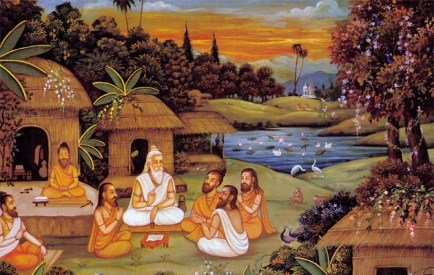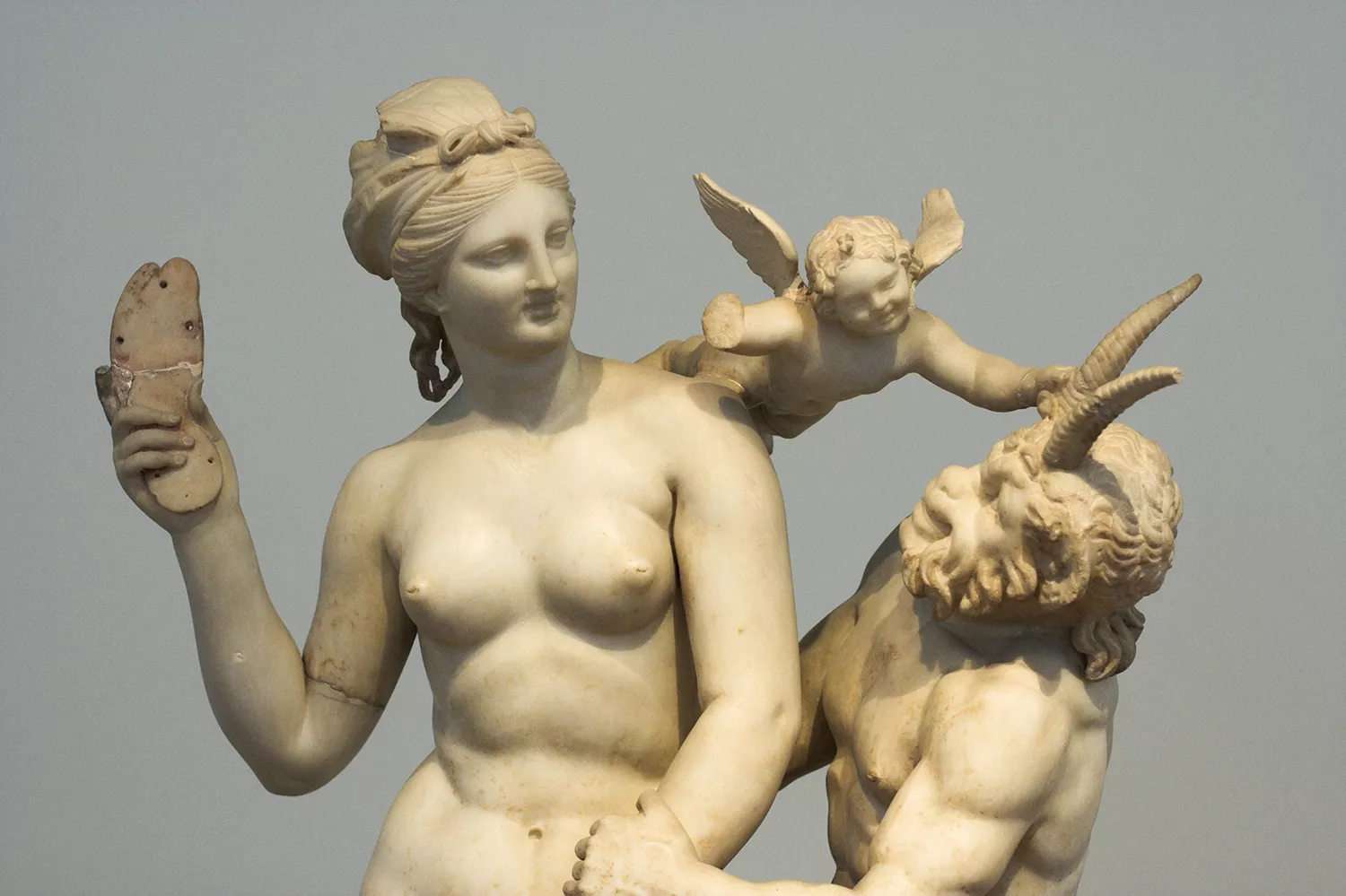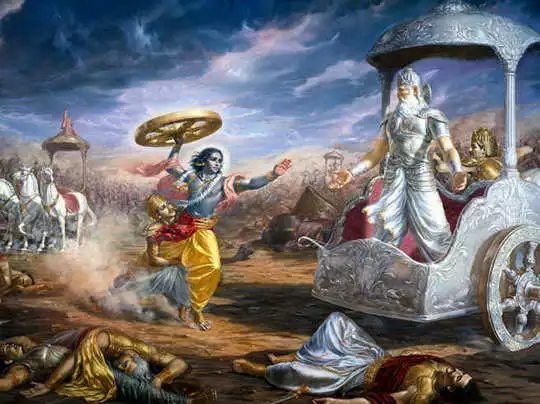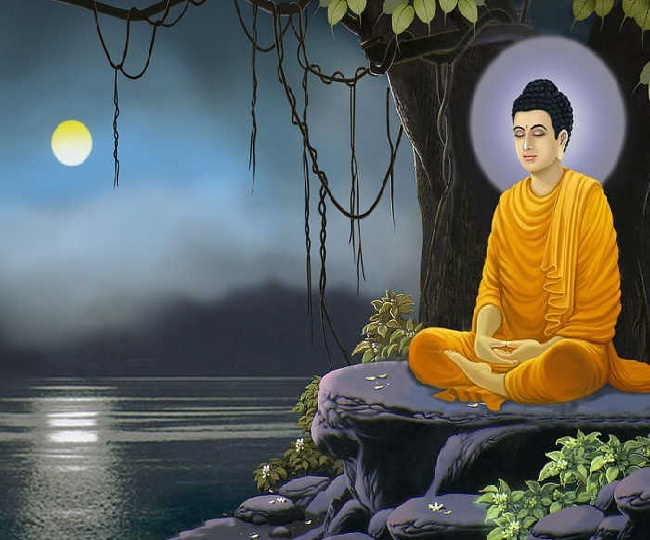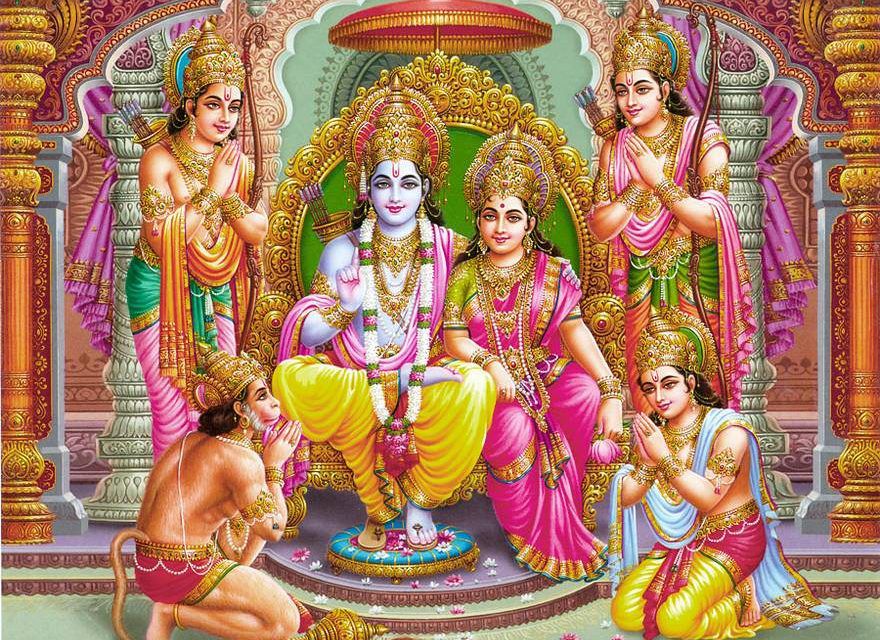Vedic Society of India and its History: The Vedic society of India represents one of the earliest documented civilizations in human history. Rooted in the ancient texts known as the Vedas, this society flourished around 1500 BCE to 500 BCE, primarily in the northern part of India. The Vedic period laid the foundation for Indian culture, philosophy, social structure, and religious beliefs, which continue to influence modern India.
Vedic society was deeply spiritual and centered on rituals, learning, and communal living. Knowledge was primarily transmitted orally, and the Vedas were considered sacred texts, encompassing hymns, rituals, philosophical ideas, and guidance for daily life.
Social Structure in Vedic Society
The social structure of Vedic society was organized into a hierarchical system known as Varna, which later evolved into the caste system. The four primary Varnas were:
- Brahmins – Priests and scholars responsible for religious rituals and preserving knowledge.
- Kshatriyas – Warriors and rulers who protected society and maintained law and order.
- Vaishyas – Merchants, traders, and farmers who contributed to the economy.
- Shudras – Laborers and service providers serving the upper three classes.
This division aimed to maintain social order and define roles, though over time, it became rigid and hereditary.
Economic Life and Occupations
The Vedic economy was predominantly agrarian, with farming forming the backbone of society. Crops like barley, wheat, and rice were cultivated, while cattle rearing played a vital role in sustaining livelihoods. Cows were considered sacred and a symbol of wealth.
Trade and commerce also existed, as evidenced by the barter system and trading of goods such as metals, grains, and livestock. Craftsmanship, pottery, and weaving were common occupations, particularly among the artisan communities.
Religion and Spiritual Practices
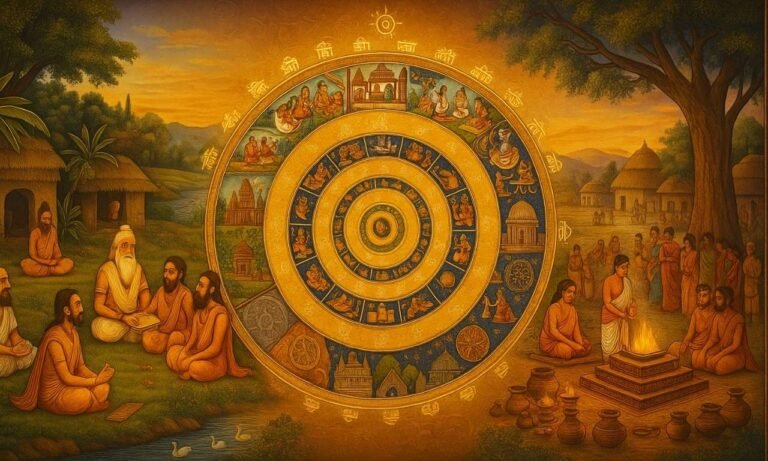
Religion was central to the Vedic way of life. The Vedas detailed complex rituals, ceremonies, and sacrifices performed to appease deities and ensure prosperity. Yajnas (sacrificial rituals) were conducted in open spaces and often involved the community.
The Vedic gods, such as Indra, Agni, Varuna, and Soma, represented natural forces like rain, fire, and the moon. Over time, philosophical texts like the Upanishads emerged, emphasizing spiritual knowledge, self-realization, and the concept of Brahman, the ultimate reality.
Education and Learning
Education in Vedic society was highly valued. Young boys, particularly from Brahmin families, studied at Gurukuls (residential schools) under the guidance of a Guru (teacher). Subjects included the Vedas, philosophy, grammar, mathematics, astronomy, and ethics.
Learning was not merely academic but aimed at shaping moral character, spiritual insight, and civic responsibility. Oral tradition was strong, and memorization of Vedic hymns was an essential skill for students.
Cultural Contributions
Vedic society contributed significantly to Indian culture. Music, poetry, and dance were integral to religious ceremonies and social gatherings. The recitation of hymns and chanting of mantras influenced the evolution of Sanskrit, the classical language of India.
Additionally, Vedic philosophy and principles have influenced later Indian texts, including the Mahabharata, Ramayana, and Dharmashastras, laying a foundation for Indian ethics, law, and governance.
Decline and Legacy
By around 500 BCE, the later Vedic period saw the emergence of urban settlements, kingdoms, and kingdoms, marking a shift from the earlier pastoral society. Despite this transformation, the ideals, rituals, and social principles of the Vedic society continued to influence Indian civilization for centuries.
The legacy of the Vedic society is visible in modern Indian philosophy, religious practices, social norms, and cultural identity, reflecting a civilization deeply rooted in spirituality, learning, and social cohesion.
The Vedic society of India was a remarkable civilization that shaped the cultural, social, and spiritual framework of the subcontinent. Its emphasis on education, spirituality, and social organization has left an enduring legacy. Understanding this ancient society provides valuable insight into the roots of Indian culture and the historical development of human civilization.
Confucius the Chinese Philosopher
Spirituality and Self-Consciousness
Read Also: Astrology And Tantra Website Design
![]()

